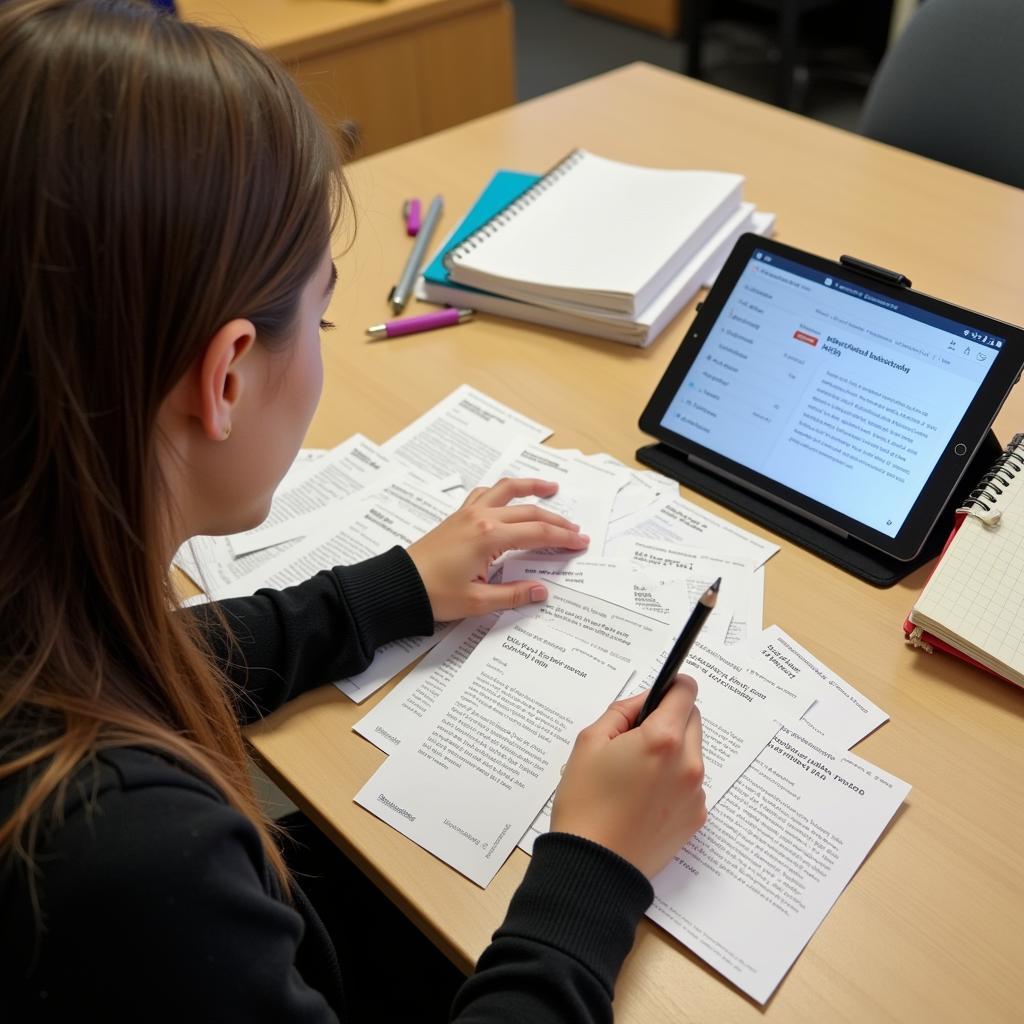Are you preparing for the IELTS Speaking exam but don’t have a study partner? Don’t worry! With the right approach, you can effectively practice and improve your speaking skills on your own. This comprehensive guide will provide you with expert tips and strategies to help you excel in your IELTS Speaking test, even when practicing alone.
Understanding the IELTS Speaking Test Format
Before diving into practice techniques, it’s crucial to understand the structure of the IELTS Speaking test. The exam consists of three parts:
- Part 1: Introduction and interview (4-5 minutes)
- Part 2: Individual long turn (3-4 minutes)
- Part 3: Two-way discussion (4-5 minutes)
Familiarizing yourself with this format will help you tailor your practice sessions more effectively.
Essential Solo Practice Techniques
1. Record and Analyze Your Responses
One of the most effective ways to practice speaking without a partner is to record yourself. Follow these steps:
- Choose a speaking topic or question.
- Set a timer according to the part you’re practicing.
- Record your response using your smartphone or computer.
- Listen to the recording and analyze your performance.
- Take notes on areas for improvement, such as pronunciation, fluency, or vocabulary usage.
 Student recording IELTS speaking practice
Student recording IELTS speaking practice
2. Use IELTS Speaking Apps and Online Resources
Leverage technology to enhance your solo practice:
- Download IELTS Speaking practice apps that provide sample questions and timed exercises.
- Utilize websites offering free IELTS Speaking materials and mock tests.
- Join online IELTS forums to connect with other learners and share experiences.
3. Practice with AI Language Partners
Artificial Intelligence has revolutionized language learning. Consider using AI-powered language exchange apps that simulate conversations and provide instant feedback on your speaking skills.
Developing Confidence and Fluency
Building confidence is crucial for success in the IELTS Speaking exam. Here are some strategies for speaking more confidently:
- Practice positive self-talk before and during your speaking sessions.
- Visualize yourself performing well in the actual exam.
- Focus on communicating your ideas rather than achieving perfection.
- Embrace mistakes as learning opportunities.
“Confidence in speaking comes from consistent practice and a positive mindset. Remember, it’s not about being perfect, but about effectively communicating your thoughts,” says Dr. Emma Thompson, IELTS Speaking Expert.
Expanding Your Vocabulary
A rich vocabulary is essential for scoring high in the IELTS Speaking test. Try these techniques to enhance your lexical resource:
- Learn a new word or phrase daily and use it in context.
- Create topic-specific word lists and practice using them in sentences.
- Read English newspapers, magazines, or books to expose yourself to diverse vocabulary.
- Use vocabulary apps that offer spaced repetition for better retention.
 Student studying IELTS vocabulary
Student studying IELTS vocabulary
Mastering IELTS Speaking Part 2
Part 2 of the IELTS Speaking test often challenges candidates due to its long-turn nature. Here’s how to practice effectively:
- Use a stopwatch to time your 1-minute preparation and 2-minute speech.
- Create a bank of common Part 2 topics and practice regularly.
- Develop a structure for your responses (e.g., introduction, main points, conclusion).
- Practice extending your answers with examples and personal experiences.
Handling Tricky Questions
Sometimes, you may encounter difficult vocabulary questions or topics you’re unfamiliar with. Here’s how to manage:
- Practice paraphrasing questions you don’t fully understand.
- Learn techniques for buying time, such as asking for clarification or repeating part of the question.
- Develop strategies for speaking about unfamiliar topics by relating them to your experiences.
Managing Speaking Anxiety
Feeling nervous about speaking in English is common, but it’s important to manage speaking anxiety effectively. Try these techniques:
- Practice deep breathing exercises before and during your speaking sessions.
- Gradually increase the difficulty of your practice topics to build confidence.
- Simulate exam conditions by dressing formally and sitting at a desk during practice.
“Remember, a certain level of nervousness is normal and can even enhance your performance. The key is to channel that energy positively,” advises Dr. James Wilson, IELTS Performance Coach.
Improving Pronunciation and Intonation
Clear pronunciation and natural intonation are crucial for effective communication in the IELTS Speaking test:
- Use pronunciation apps to practice difficult sounds in English.
- Watch English movies or TV shows with subtitles, focusing on the speakers’ intonation.
- Practice tongue twisters to improve your articulation.
- Record yourself reading passages aloud and compare your pronunciation with native speakers.
Fine-tuning Your Grammar
While the IELTS Speaking test doesn’t expect perfect grammar, using proper sentence boundaries and a range of structures can boost your score:
- Practice using a variety of tenses in your responses.
- Focus on using complex sentences with connectors and relative clauses.
- Review common grammar mistakes made by IELTS candidates and practice avoiding them.
Conclusion
Practicing for the IELTS Speaking exam alone may seem challenging, but with dedication and the right strategies, you can significantly improve your skills. Remember to focus on all aspects of speaking, including fluency, vocabulary, pronunciation, and grammar. By consistently applying these tips and techniques, you’ll be well-prepared to tackle the IELTS Speaking test with confidence. Keep practicing, stay motivated, and watch your speaking abilities soar!
Frequently Asked Questions
-
How often should I practice speaking for IELTS when preparing alone?
It’s recommended to practice speaking for at least 30 minutes daily, focusing on different aspects of the test each day. -
Can I improve my IELTS speaking score by watching English movies and TV shows?
Yes, watching English-language media can help improve your listening skills, vocabulary, and cultural understanding, all of which contribute to better speaking performance. -
Is it necessary to use advanced vocabulary in the IELTS Speaking test?
While using some advanced vocabulary can improve your score, it’s more important to use a range of vocabulary accurately and appropriately. -
How can I find speaking topics to practice with?
You can find sample speaking topics in IELTS preparation books, official IELTS websites, and various online IELTS forums and resources. -
Should I memorize answers for the IELTS Speaking test?
It’s not recommended to memorize answers as it can sound unnatural. Instead, focus on developing flexible language skills to discuss various topics spontaneously. -
How can I get feedback on my speaking practice if I’m preparing alone?
You can use AI-powered language apps, join online IELTS communities for peer feedback, or consider occasional sessions with an online IELTS tutor. -
Is accent important in the IELTS Speaking test?
Your accent is not assessed in the IELTS Speaking test. What’s important is that your pronunciation is clear and understandable.


